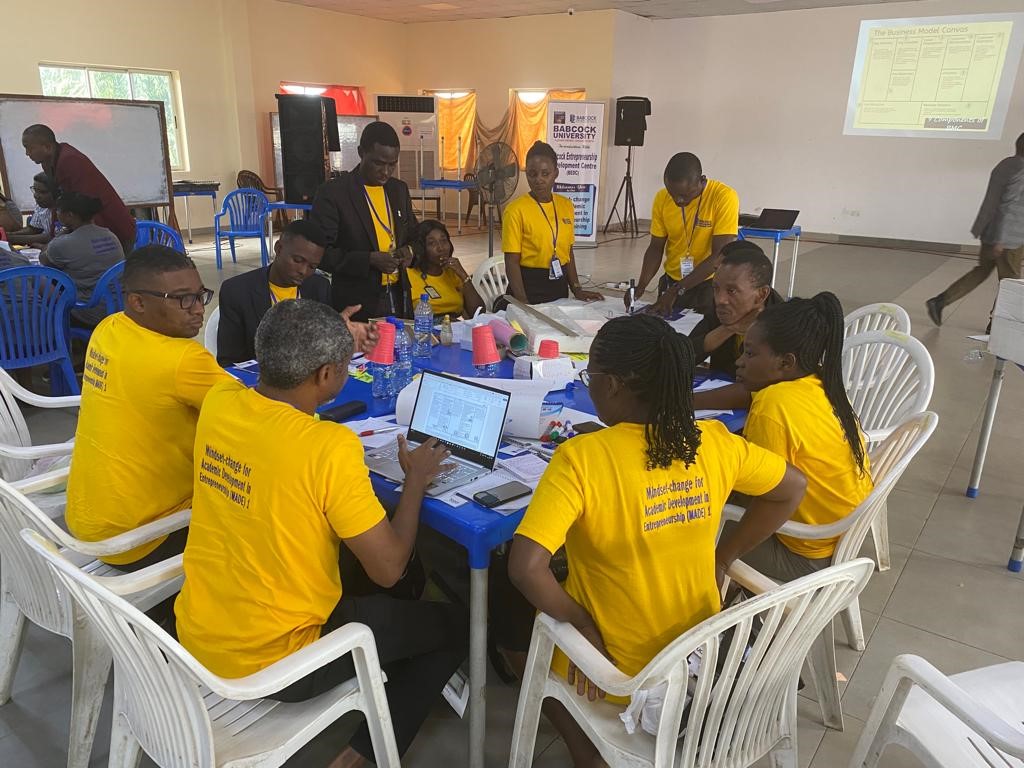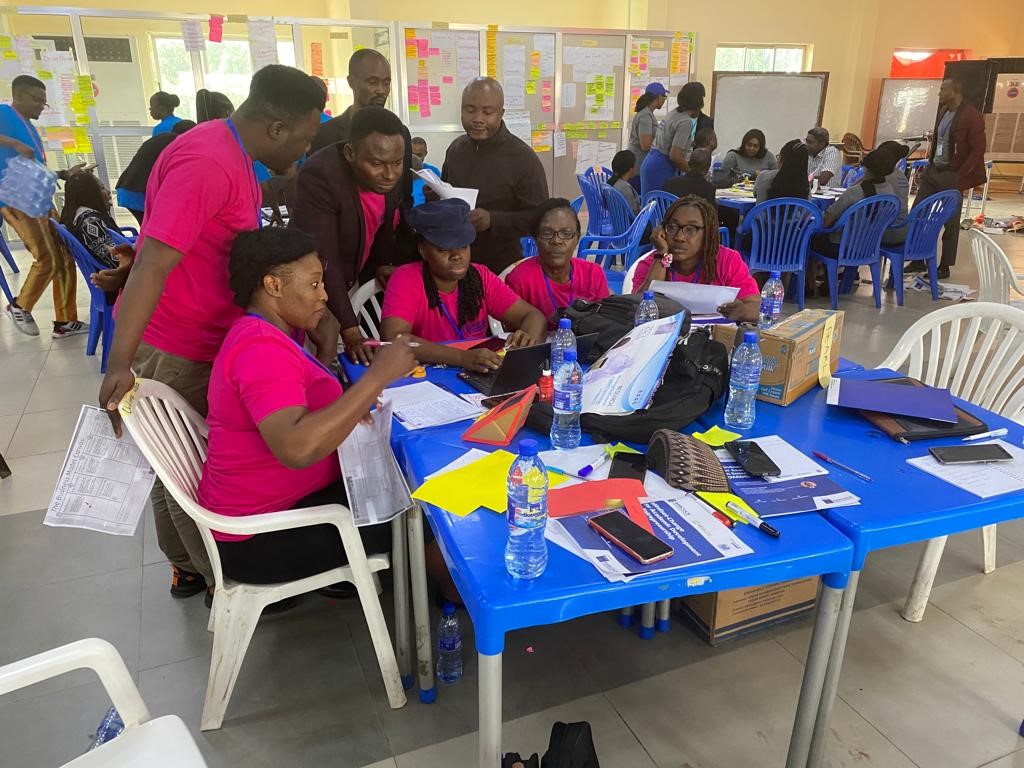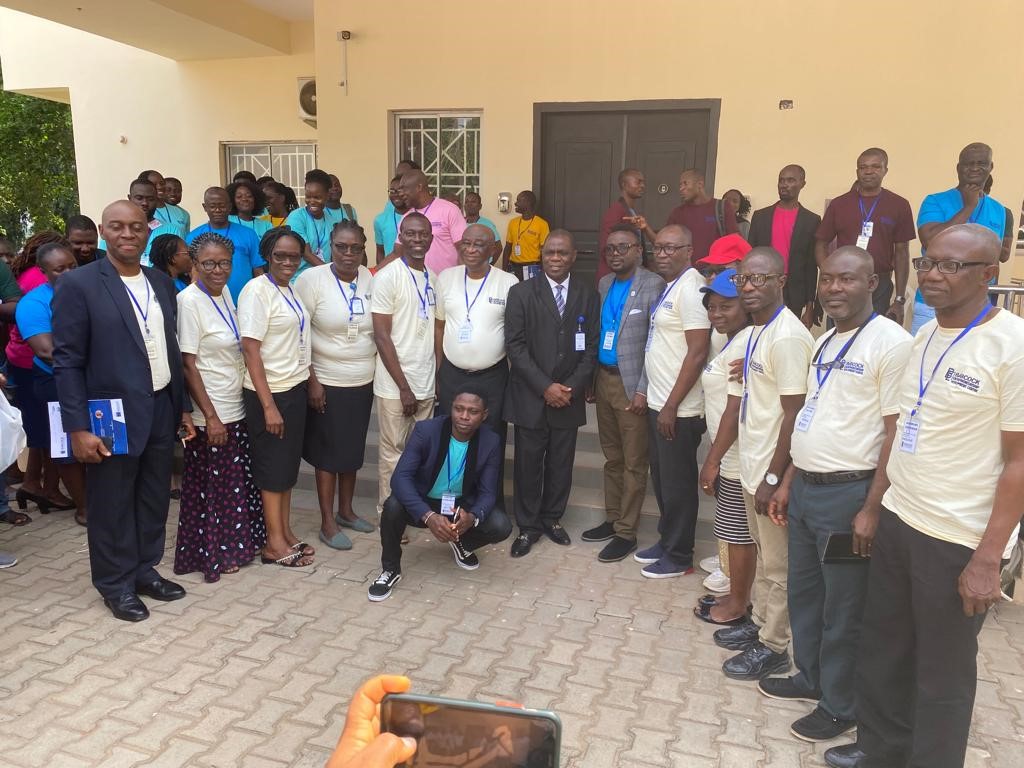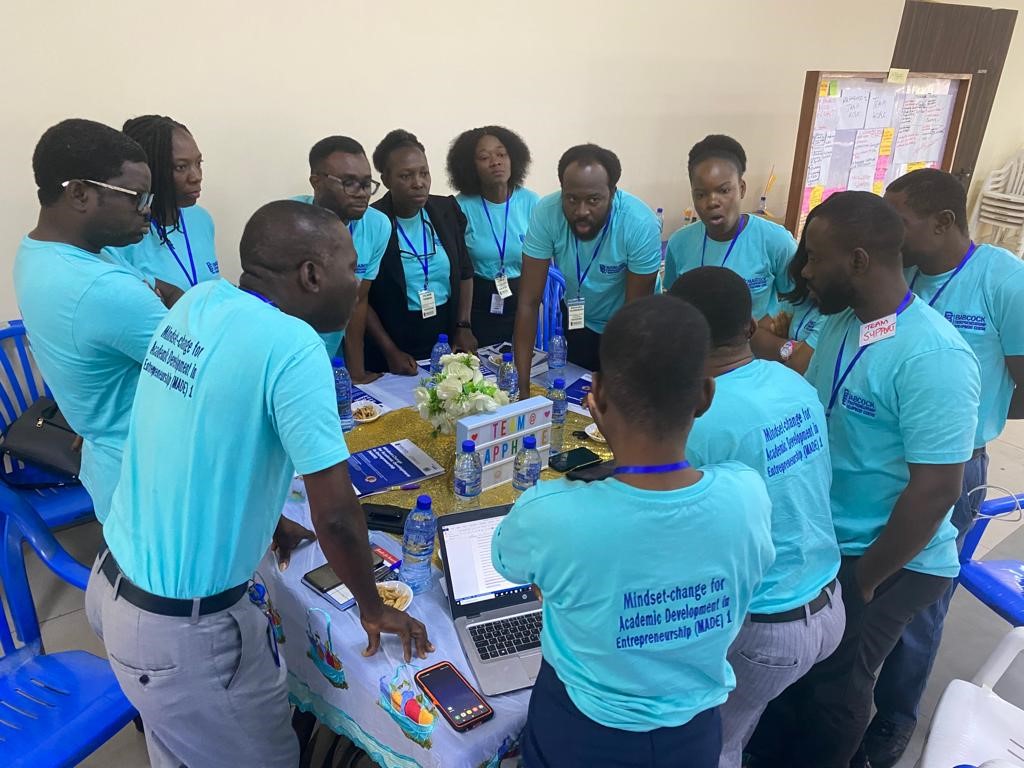Mindset-change for Academic Development in Entrepreneurship (MADE) training for BU faculties
- 10:00 AM
- Babcock University
Mindset-change for Academic Development in Entrepreneurship (MADE) training for BU faculties
Introduction:
The maiden edition of the Mindset-Change for Academic Development in Entrepreneurship (MADE) training was held on September 7-9, 2022, at Babcock University. The essence of the training was to enable Babcock University faculties to reason entrepreneurially and help their students reason entrepreneurially. The training was mind-blowing, and all faculties that participated found it highly beneficial. This report will provide an overview of the activities that took place during the MADE training.
Training Sessions:
The training sessions were designed to provide the Babcock faculties with a comprehensive understanding of the basics of entrepreneurship and innovation for all disciplines, engaging with stakeholders in the entrepreneurship ecosystem, and understanding the basics of design thinking. The training involved team formation where each team had series of activities and exercises to do. Each team was turned into a startup for the purpose of the training, each identified a problem and came up with an innovative solution to the problems identified. Each team was made to build a prototype for the solutions they came up with.
Team Activities:
The team activities were aimed at enabling the faculties to think creatively and come up with innovative solutions to the problems identified. The activities were engaging and thought-provoking, and they helped the faculties to understand the importance of teamwork and collaboration in entrepreneurship. The teams were also made to pitch their innovative solutions in a pitching competition, which emerged the first, second, and third positions.
Pitching Competition:
The pitching competition was the highlight of the training, and it provided an opportunity for the faculties to showcase their entrepreneurial skills and innovative solutions. Each team was given the opportunity to pitch their solution to a panel of judges, and the judges evaluated each pitch based on various criteria such as feasibility, creativity, and innovation. The competition was intense, and each team gave their best to impress the judges.
Conclusion:
The MADE training was a great success, and it provided the Babcock faculties with the necessary skills and mindset to reason entrepreneurially and help their students to do the same. The training was highly engaging and thought-provoking, and it enabled the faculties to think creatively and come up with innovative solutions to the problems identified. The team activities and pitching competition were highly beneficial, and they provided an opportunity for the faculties to showcase their entrepreneurial skills and innovative solutions. The MADE training was a step in the right direction towards promoting entrepreneurship among the faculties at Babcock University.
Picture Gallery:




